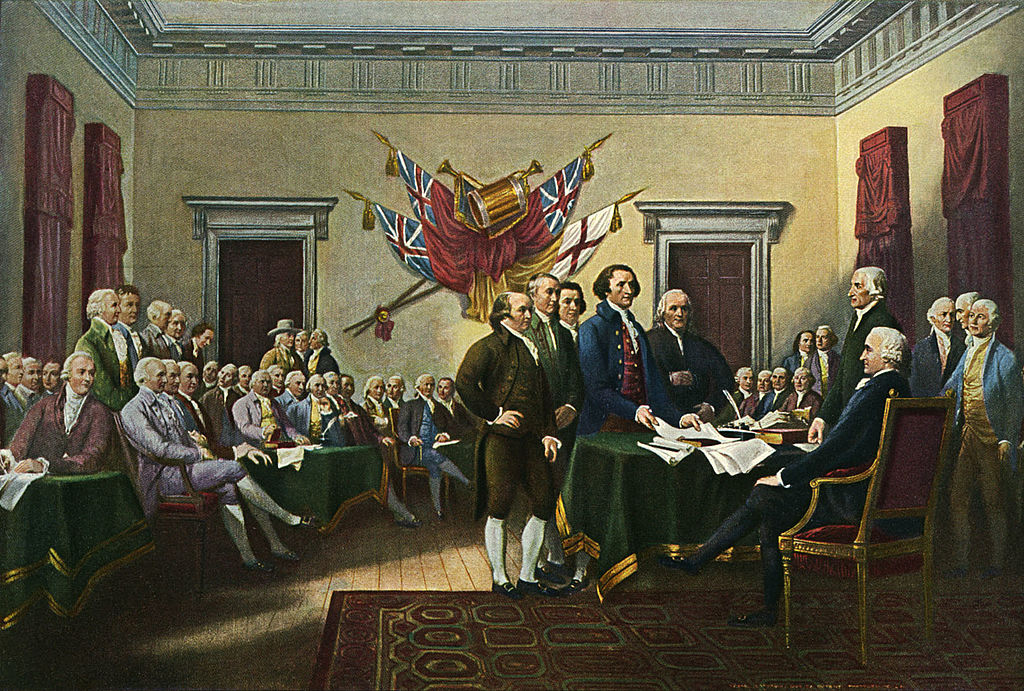Even though most of us may not admit it, slavery and racial questions were at the heart of America's beginnings. John Adams said 40 years after 1776 that getting all 13 colonies to unite against Great Britain was quite difficult and unheard of in all of history. He essentially suggested that he and the other members of the Continental Congress performed a miracle. However, it covered up the work that he and his colleagues had been doing for years prior to the American Revolution.
Recently, a new debate has been sparked over the role of race in American history, and the most scrutinized part of that history is the founding of this nation. As it turns out, leaders of the revolution were quite concerned about the British inciting slave rebellions all over the South once the war began. They began to put words like "treachery" and "instigated insurrection" into everyone's mouths. Finally, when the drafted the Declaration of Independence in 1776, the very last crime that King George was accused of involved enslaved and native populations joining King George against the Americans.
Thomas Jefferson had written a passage about the slave trade, condemning it as an evil, cruel violation of humanity. However, the Continental Congress eliminated nearly the entire section, but retained the small part about domestic insurrections. They said that the King had attempted to bring natives from the frontier into the war, and by avoiding this, the patriots were in the right.
Patriot leaders had found the one thing that all the colonies could agree on: racism. They mobilized these fears and prejudices to bring the nation together, but this would root the same in the American Republic.
